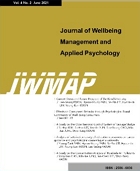- Log In/Sign Up
- E-ISSN2586-6036
- KCI
 E-ISSN : 2586-6036
E-ISSN : 2586-6036
Jae-Seong LEE
Young-Hun GWAK
Young-Jin SO
Abstract
Purpose: This study was conducted to examine the structural relationships among mothers' parenting practices, child's self-esteem, and child's well-being and to explore the mediating effects of mothers' parenting practices on child's well-being through child's self-esteem. Research design, data, and methodology: Data from the 10th and 13th waves of the Korean Child Study Panel were used for the study, and data from 1,213 mothers and child were analyzed using SPSS 28.0 and the R statistical program. Results: First, in the relationship between the mother's parenting practices, the child's self-esteem, and well-being, the mother's authoritative parenting practices were positively correlated with the child's self-esteem and well-being. Second, the mother's authoritative parenting practices in preschool directly influenced the child's self-esteem in late school, and the child's self-esteem directly influenced the child's well-being. Third, mothers' authoritative parenting practices in the preschool years had a static effect on child's Well-being through the mediation of child's Self-Esteem in the late school years. The direct mediation effect of the Child's Self-Esteem was confirmed. Conclusions: To promote child's Well-being, mothers should adopt authoritative parenting practices with affection and control and try to improve child's self-esteem. In addition, programs that focus on improving child's self-esteem can be expected to enhance school-aged child's well-being.
- keywords
- Self-Esteem, Well-Being, Parenting Practice
- Downloaded
- Viewed
- 0KCI Citations
- 0WOS Citations













